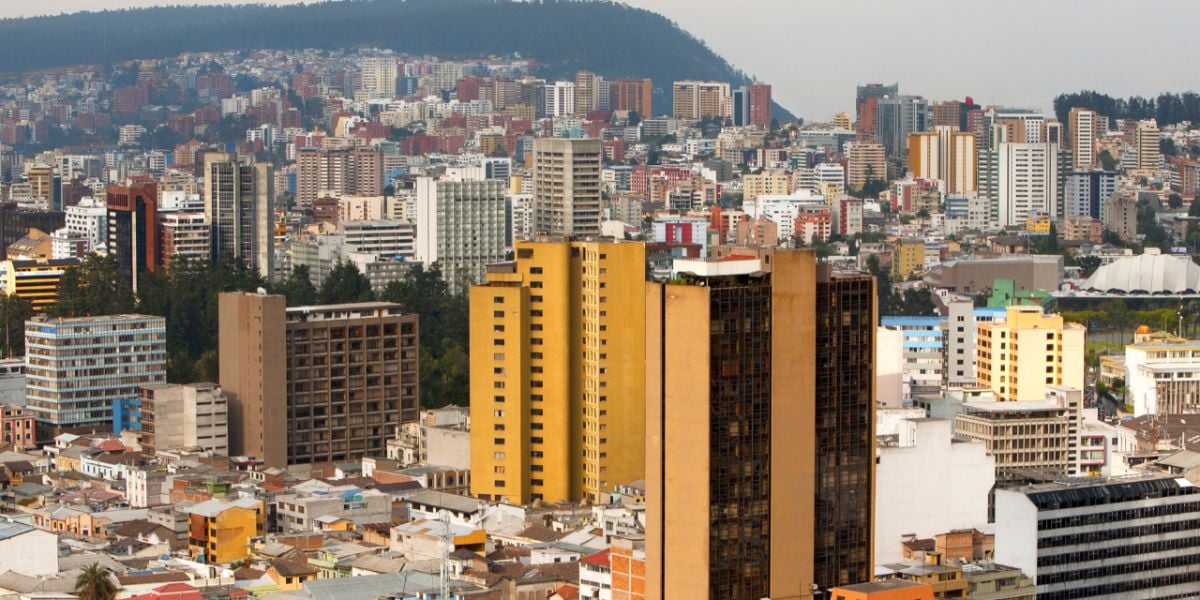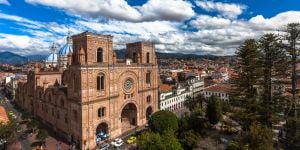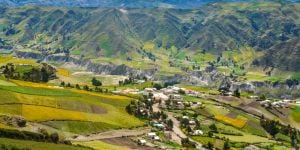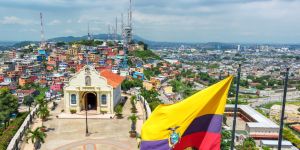
A few years back, an expat would just breeze into an Ecuadorian bank, flash their passport and a bank account would be opened for them. Alas, things are not quite as simple anymore due to the many banking regulations. However, you should still be able to open a bank account if you follow our advice below.
A savings account
If you are in Ecuador on a temporary basis, such as prospecting to see whether you want to come and live there for good, your one banking option will be to open a savings account. To obtain one, the bank of your choice will require:
- your passport
- 2 letters of reference: one personal and one from a commercial entity
- proof of residence (even if only temporary residence) in the form of a notarized lease or a local utility bill with your name on it. This means you will have established a utility connection within Ecuador, such as an internet account, and received a first billing statement at the very least
- finally, a letter of reference by your bank abroad, providing proof of a legitimate source from which funds will be transferred into your new Ecuadorian bank. This letter must show the current balance of your account at the referral bank
A savings account will allow you to receive wire transfers from banks outside of Ecuador and set up automatic payments to utilities or insurance entities.
A checking account
Nowadays, a checking account can be opened only if you have achieved permanent residency status or have purchased property and/or made a monetary investment in Ecuador.
In addition to the documentation for a savings account above, you must add either a notarized and filed Escritura Publica (a real estate deed of title), a proof of investment of a sum of $25,000 or more (this may be a bank CD, deposited in an Ecuadorian bank), or proof that you have capitalized a business enterprise in the amount of $25,000 or more. An alternative would be presenting proof of permanent residency such as a Pensioners Visa.
Very few expats or even Ecuadorians utilize checks in Ecuador. Cash and credit are more common. The Ecuadorian government is working on a form of virtual payments, utilizing cellphones along with automatic deposits of payroll monies. As Ecuador buys actual currency from the US in the form of US dollars, this virtual form of deposit and payments are done in hopes of lessening the expense on Ecuador's Central Bank (Banco Centrale) of purchasing coins and paper money from the United States.
Bank on stability
With the 1998 financial crisis when two banks failed is still too close for comfort in Ecuador, it is crucial to give a thought to stability when you're choosing the bank with which you wish to open an account. Ecuador offers both banks and Cooperativos (Coops), which operate similarly to Credit Unions in the US, and both usually pay interest on deposit accounts. Many newer banks and Coops have popped up since this crisis and therefore do not have a long banking history.
The following list of banks enjoy excellent reputations and have ATMs easily accessible throughout the country. These banks also offer government deposit insurance of up to $35,000 per customer, not per account, which is the industry standard in Ecuador.
Important:
Most Coops do not offer deposit insurance but are nonetheless popular with Ecuadorians and expats due to their excellent customer service.
Banco de Pichincha
Banco de Pichincha is the granddaddy of Ecuadorian banks, as it was founded in the early 20th century in Quito with the slopes of Guagua Pichincha watching over the bank. It continues to cater to a loyal, conservative client-base. Pichincha's main offices in larger cities usually staff a 'private banker' who speaks English in order to cater to the English-speaking expats with significant cash to invest. This bank's stability is not to be doubted, as it came out of the 1998 crisis pretty much unscathed and continues to be the bank of the majority of wealth Ecuadorians as well as most government officials and workers.
Banco de Guayaquil
A sound Ecuadorian institution, Banco de Guayaquil is one of the two banks to have survived the 1998 crisis and is a flourishing entity today. Their one disadvantage lies in their somewhat unenthusiastic client service.
Banco Bolivariano
With its emphasis on cooperating with their clientele, this modern, on-the-rise bank is an excellent choice for foreigners seeking to open an account. IESS prefers this bank for health insurance automatic monthly debits for IESS affiliates. Recently, this bank has opened new branches with drive-through banking in the larger cities.
ProduBanco
ProduBanco does not spare its efforts to lure in clients, and as a result offers great ease of access (in some supermarkets across the country, notably). ANT requires potential licensees to use this bank for payments for driver's license testing and issuing.
Good to know:
It is easy to pay bills in Ecuador as most Coops and some banks offer a walk-up teller payment service for cellphone, internet, water, rent, DirectTV, etc. All one needs to know is either the cell or utility account number or the bank account number of the recipient. Payments can be set up to be withdrawn from your bank account or you can present yourself monthly to pay the bills at your leisure, and both methods are quite common everywhere in Ecuador.
Tip
Waiting in line at the bank is almost a national sport of endurance in Ecuador, particularly on payday or the day after a bank holiday. Cellphone use (along with wearing sunglasses or hats) is not allowed while standing in line. However, if you are 65 or over (known as Tercera Edad), pregnant, handicapped, or with children, there is always a special shorter line for you!
Useful links:
Banking in Ecuador for expats
Listing of banks in Ecuador
Article on the state of banks in Ecuador
We do our best to provide accurate and up to date information. However, if you have noticed any inaccuracies in this article, please let us know in the comments section below.











